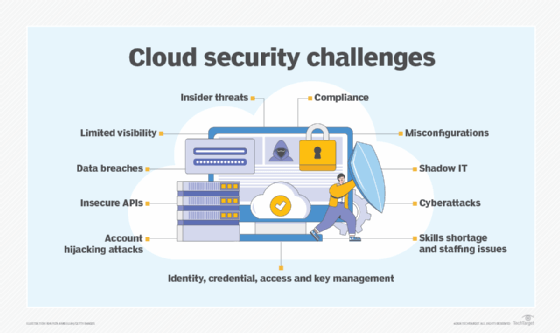Cyber Security in India has become a pivotal concern as the nation embraces its digital future, championed by initiatives like Digital India. With the rapid evolution of technology, data protection and information security have taken center stage, necessitating robust cyber security initiatives across various sectors. Organizations are urged to prioritize the safeguarding of sensitive data against an increasing landscape of cyber threats, which heightens the need for trained professionals. As reported by NASSCOM, the collaboration between government and industry stakeholders is essential to enhance capacities and foster innovation in security solutions. By addressing vulnerabilities and streamlining efforts towards a secure digital infrastructure, India is poised to emerge as a leader in cyber security on the global stage.
In the realm of digital defense, the emphasis on safeguarding sensitive information is critical amid India’s transformative journey towards becoming a digital powerhouse. The surge in cyber-related incidents has highlighted the urgent need for effective protection strategies and proactive measures within the information technology landscape. The integration of advanced security protocols, coupled with the government’s vision encapsulated in the Digital India initiative, aims to fortify the nation’s cyber resilience. Additionally, fostering industry collaboration plays a fundamental role in addressing the evolving threats, ensuring a collective response to enhance capacities within this domain. Ultimately, as digitalization accelerates, prioritizing security is not just an option but a necessity to sustain growth and build trust among users.
Understanding Cyber Security in India
Cyber security in India has evolved significantly over the years, particularly with the increasing digitalization of various sectors. As businesses and government initiatives embrace the digital realm under the Digital India initiative, the country faces a myriad of cyber threats ranging from data breaches to cyber espionage. The rise of technology adoption among enterprises emphasizes the need for comprehensive cyber security measures. In this context, organizations like the Data Security Council of India (DSCI) collaborate with key stakeholders including the central government and industry leaders to formulate effective policies and response plans.
In response to these challenges, a range of cyber security initiatives have been introduced, focusing on enhancing data protection and information security across all sectors. DSCI’s aim to raise awareness about best practices and responsive strategies plays a crucial role in fostering a safer digital environment. With the growing emphasis on building a skilled workforce through programs developed in partnership with NASSCOM and Symantec, the significance of education and training in cyber security cannot be overstated. This commitment will help India’s workforce effectively combat the evolving threats in the cyber landscape.
The Importance of Digital India in Cyber Security Initiatives
The Digital India initiative represents a transformative effort to propel the country towards substantial digital growth, unlocking new opportunities for various industries. However, as India shifts towards a more digital economy, the importance of robust cyber security initiatives becomes paramount. Recognizing this, programs launched by DSCI work hand in hand with Digital India to secure data and systems, promoting a culture of security awareness among both enterprises and consumers. The initiative not only drives economic growth but concurrently strives to address potential cyber threats that can undermine this progress.
Moreover, Digital India emphasizes the need to bolster information security frameworks that support the initiative’s goals. As organizations adapt to digital transformation, vigilance in implementing security measures and employing best practices becomes increasingly critical. The DSCI-led partnerships with NASSCOM and others ensure that companies can navigate their digital journeys without compromising on security, fulfilling the promise of Digital India. These investments into a secure digital infrastructure will ultimately enhance public trust and increase the consumer base, laying the foundation for sustained economic development.
Bridging the Skill Gap in Cyber Security
One of the pressing challenges in the field of cyber security is the significant skills gap that exists in India. Recognizing this deficit, the Data Security Council of India, in collaboration with NASSCOM, is focused on bridging this gap through targeted training initiatives. The certification programs developed aim to empower individuals with the necessary skills to effectively address the growing cyber threats. By establishing a structured curriculum for key job roles within the cyber security domain, these programs are instrumental in preparing a proficient work force that can respond to the market’s demands.
The initiative to cultivate certified professionals not only enhances the employability of individuals but also strengthens the overall cybersecurity ecosystem in India. With the increasing reliance on digital technologies, the urgency to develop a skilled workforce in cyber security cannot be understated. By fostering collaboration between educational institutions and industry stakeholders, India can nurture talent that is equipped to tackle emerging cyber threats. This not only supports the nation’s strategic interests but also positions India as a competitive player on the global stage.
Trends Shaping Cyber Security Strategies
As the landscape of cyber threats becomes more complex, organizations must stay ahead of evolving trends to solidify their cyber security strategies. In 2015, notable trends included the rise of insider threats and the necessity for advanced data protection mechanisms. Digital transformation, while presenting unprecedented growth opportunities, also requires a proactive approach towards risk management and incident response. The DSCI advocates for organizations to implement robust security frameworks as they navigate this digital journey, emphasizing the importance of technologies such as identity and access management.
Furthermore, the emergence of the Internet of Things (IoT) has introduced new vulnerabilities that necessitate adaptive security strategies. As businesses increasingly integrate IoT devices into their operations, the need for comprehensive monitoring and analysis solutions becomes evident. DSCI’s initiatives focus on fostering collaboration across sectors to ensure that security measures keep pace with technological advances, enabling effective responses to potential breaches. By embracing innovation while prioritizing security, enterprises can successfully capitalize on the opportunities presented by digital transformation.
Engaging Employees in Cyber Security Awareness
An integral part of maintaining a secure digital environment is fostering a culture of security awareness among employees. The Data Security Council of India emphasizes the significance of engaging employees in the digital transformation process to mitigate risks. By encouraging staff to embrace digital tools aimed at enhancing productivity, organizations can facilitate a more secure work environment. Employee training programs that focus on cyber security practices will equip teams with the knowledge needed to recognize and respond to potential threats.
Moreover, achieving engagement requires organizations to promote proactive security behaviors that integrate seamlessly into daily operations. This includes educating employees about the importance of data protection and the role they play in safeguarding sensitive information. As organizations invest in building digital competence among their teams, they not only bolster their defense against cyber threats but also enhance the overall resilience of their operations, driving progress towards a secure digital future.
The Role of NASSCOM in Cyber Security Development
NASSCOM has been pivotal in shaping India’s approach to cyber security, spearheading initiatives that support businesses in developing secure products and services. Recognizing the significance of indigenous cyber security development, NASSCOM encourages collaboration between various stakeholders to foster innovation and growth in the sector. By creating platforms for dialogue and knowledge sharing, NASSCOM helps bridge the gap between emerging technology trends and practical security applications, enabling businesses to build resilience against cyber threats.
Additionally, NASSCOM’s efforts in promoting the 10K startup program and organizing product conclaves provide budding entrepreneurs with opportunities to showcase their innovations in cyber security. By facilitating networking and partnerships, these initiatives help nurture a vibrant ecosystem that supports the growth of cyber security product development. DSCIworks closely with NASSCOM to ensure that the Indian market continues to thrive, positioning the country as a leader in the global cyber security arena.
Cyber Security Product Ecosystem in India
The establishment of a robust cyber security product ecosystem in India is essential to addressing the increasing threats in the digital space. Initiatives spearheaded by DSCI aim to create a conducive environment for the growth of cyber security startups and technology companies. The emphasis on promoting indigenous solutions not only fosters innovation but also enhances national security by reducing dependency on external products. This strategy is crucial for empowering Indian firms to compete globally while ensuring their tools and services are tailored to domestic challenges.
By launching initiatives such as the DSCI Innovation Box and the DSCI Excellence Awards, the organization recognizes and incentivizes innovative solutions in the cyber security space. These platforms provide visibility and support for companies, facilitating their journey from startup to established entity. Furthermore, collaboration with industry leaders and academic institutions aids in refining product offerings and achieving global standards. This collaborative approach is vital for nurturing a sustainable cyber security product ecosystem in India.
The Future of Cyber Security in India
The future of cyber security in India hinges on the collective efforts of government, industry, and academia. With initiatives like Digital India setting the stage for increased digital engagement, the importance of fostering a secure cyberspace has never been more critical. As threats continue to evolve, there is a dire need for adaptive strategies and collaborative frameworks to anticipate and respond to these challenges. Organizations must invest in advanced technologies and training programs to equip their teams with the skills needed to navigate this landscape.
Moreover, India’s ambition to be a global leader in cyber security necessitates a commitment to continuous improvement and innovation within the sector. By reinforcing partnerships among stakeholders, the nation can build a stronger cyber security framework that not only protects its interests but also contributes to global security. Building a culture of resilience among organizations and promoting a proactive stance towards cyber security will be imperative in achieving this vision for the future.
Frequently Asked Questions
What are some key cyber security initiatives in India under Digital India?
The Digital India initiative emphasizes enhancing cyber security standards across the nation. Key initiatives include the launch of the Cyber Security Task Force (CSTF) by NASSCOM and DSCI, aimed at positioning India as a global hub for cyber security solutions, and the implementation of the National Cyber Security Policy (NCSP), ensuring a framework for protecting citizens, information, and infrastructure.
How is the Data Security Council of India (DSCI) enhancing data protection in India?
The DSCI is pivotal in promoting data protection in India by developing frameworks and awareness programs. Since its inception, it has fostered cyber security practices across various sectors, engaged in policy research, and collaborated with government ministries to strengthen regulatory compliance for data security.
What role does NASSCOM play in shaping information security practices in India?
NASSCOM plays a significant role in shaping information security practices in India by initiating programs aimed at skill development in cyber security, including partnerships with organizations like Symantec to enhance training and certification for professionals. This collaboration ensures a skilled workforce capable of addressing modern cyber threats.
How does India’s cyber security landscape support the Digital India initiative?
India’s cyber security landscape is crucial to the Digital India initiative, ensuring that digital infrastructure is secure against threats. The government’s focus on cyber security supports digital transformation by instilling trust in users, essential for widespread adoption of e-governance and e-commerce platforms.
What measures are being taken to promote a cyber security product ecosystem in India?
To promote a cyber security product ecosystem, initiatives like the DSCI Innovation Box and the establishment of a cyber security product forum have been introduced. These aim to support local companies through mentorship, funding, and global market exposure, fostering innovation in the cyber security sector.
What is the significance of the Cyber Lab Program initiated by DSCI?
The Cyber Lab Program is significant as it enhances law enforcement capabilities in India by providing training, tools, and technologies to address cyber crimes effectively. This initiative supports both public and private sectors in developing better incident response strategies and improving overall cyber resilience.
How can businesses in India improve their cyber security measures?
Businesses in India can improve their cyber security measures by investing in education and training for employees, implementing robust identity and access management systems, and leveraging next-generation security technologies. Engaging with councils like DSCI can provide insights and resources to strengthen their cyber security posture.
What are the upcoming challenges for cyber security in India?
Upcoming challenges for cyber security in India include the need to keep pace with emerging technologies, such as IoT and AI, which present new vulnerabilities. Additionally, ensuring comprehensive digital literacy and incorporating cyber security into product design remain essential for building a secure digital ecosystem.
What impact does data protection have on businesses in India today?
Data protection has a profound impact on businesses in India today, as compliance with data privacy regulations enhances consumer trust and protects against legal consequences. Businesses prioritizing data security can leverage this protection to improve their competitiveness and innovation while safeguarding sensitive information.
How is DSCI contributing to the global discourse on cyber security?
DSCI contributes to the global discourse on cyber security by participating in international forums and conducting research that informs global practices. By collaborating with global entities and sharing insights from India’s cyber security framework, DSCI helps promote India’s strategic interests and emphasizes its role as a leader in this field.
| Key Focus Areas | Details |
|---|---|
| Policy Research and Enablement | Engage with government bodies to set standards for cyber security. |
| Global Leadership | Act as a leader in international discussions on cyber security. |
| Education and Awareness | Promote cyber security education among citizens and professionals. |
| Industry Collaboration | Work with IT-BPM, BFSI, healthcare, and other sectors. |
| Cyber Lab Program | Enhance law enforcement’s capabilities through specialized training. |
| Certification Programs | Develop certified professional programs to fill the skills gap. |
| Digital India Initiative | Focus on digital infrastructure and user security. |
| Indigenous Product Development | Support local companies in creating cyber security products. |
Summary
Cyber Security in India is becoming increasingly vital as digital transformation accelerates across industries. The Data Security Council of India (DSCI) plays a significant role in shaping the cyber security landscape by focusing on policy enablement, industry collaboration, and the development of a skilled workforce. As India embraces the Digital India initiative, it must prioritize robust security measures to protect its citizens and enterprises from emerging cyber threats. With ongoing efforts to promote education, certifications, and indigenous product development, India is poised to strengthen its position in the global cyber security arena.



